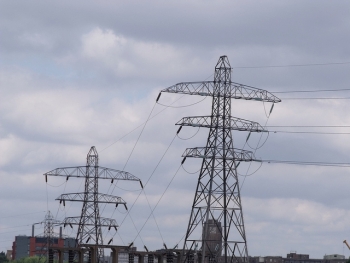Compare Electricity Rates For the Best Deals

Almost all energy suppliers boast that they offer the cheapest prices, and this makes it difficult for consumers to be able to choose the tariff that best suits them. However, by considering your energy consumption pattern, and by applying this to find the most appropriate tariff, it will be easier for you to be able to identify which really offers the best deal for you.
You should start by checking that you do not have to pay a cancellation fee before collecting bills to get a better idea of your consumption pattern. Using this information you can ascertain the most appropriate tariff. Taking into account any special requirements you might have, such as a tariff for prepay meters, you can then compare electricity rates and make the switch to the cheapest provider.
Your Contract
You should always start with your contract. Some contracts have a tie-in period: a period during which you will be charged a cancellation fee if you try changing supplier. This cancellation fee may make it more difficult to profit from changing supplier, but you should check first.
Your contract will also contain other details. You will be able to determine whether you are receiving any dual fuel discount, direct debit discount, or any additional offers that have directly affected your prices. This is important information, because you may be able to get a cheaper deal while staying with your current energy provider.
Your Consumption
Collect your most recent bills so that you can look at precisely how and when you use your electricity. Without a clear understanding of your energy usage, it is impossible to be certain that you are choosing the best deal for your needs.
Ideally, you should be able to collect a year's worth of data. This will enable you to take seasonal changes into account and, it will give you a much clearer picture of your usage than a single month or quarter would. If you receive online bills then you should be able to export the data, or copy and paste it, into a spreadsheet so that you can work with the information you have.
Choosing a Tariff
Once you know the times of day that you use the most electricity, you can choose the most appropriate tariff. This is important because, while a single rate tariff is convenient and simple to understand, Ecconomy 7 or Economy 10 tariffs could provide you with considerable savings on your annual electricity spend.
You should also determine whether you want a fixed or variable rate deal, or a capped price deal. A variable rate price will go up and down, as your supplier increases and decreases their prices. A capped price will go up and down, but will not pass an upper ceiling. A fixed rate price will remain on the same price for the entire duration of the agreement.
Special Requirements
Some households, and some individuals, have specific electricity requirements. For example, a prepay meter can help you to more accurately manage your energy consumption and spend, but it will require that you have a special prepay tariff. Unfortunately, these usually work out more expensive than standard electricity prices.
You may want electricity that comes only from green energy sources, or a feed-in tariff that not only supplies electricity, but also pays you for the energy that you produce using solar panels and other forms of renewable energy. If you require any of these special types of tariff then your options will be fewer, and you may find it more difficult to access the lowest possible prices.
Compare Electricity Rates
Once you have found the type of tariff you require, including any special requirements, you can compare electricity rates provided by the suppliers. By choosing your tariff first, it means that you can compare on a like for like basis and, as long as your energy consumption pattern does not alter, it will help ensure that you get the best prices for your consumption.
Remember to take all fees, discounts, and charges into account when you compare electricity rates. Subtract any direct debit or dual fuel discounts that you would receive, and consider any cancellation fees that might be included in the deal. These may play a significant part in helping you to determine which is the best tariff for your electricity needs.
